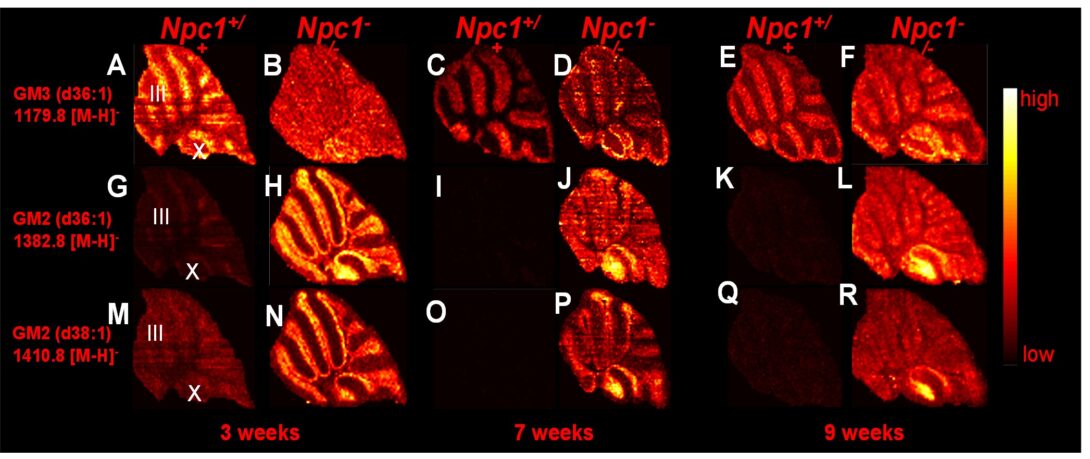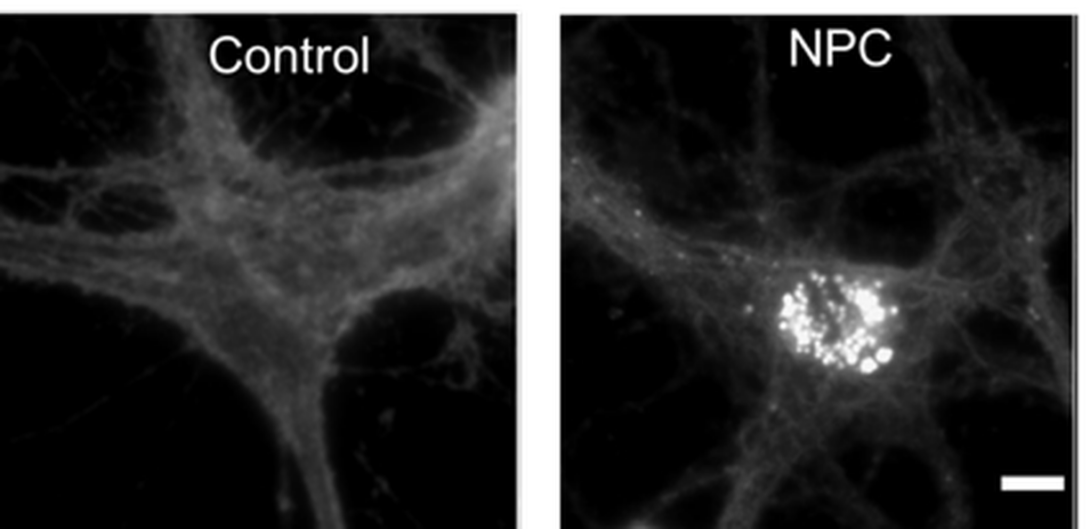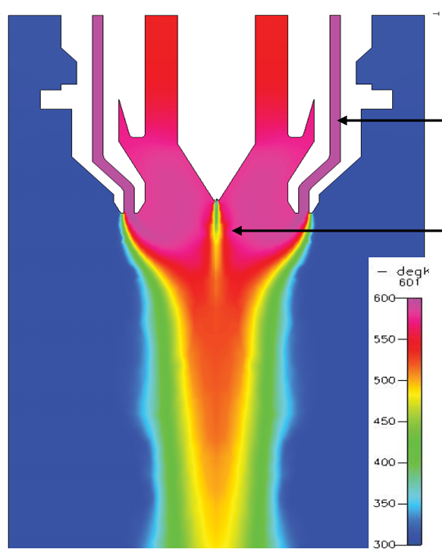Research in our laboratory is centered around neurodegeneration and Niemann-Pick Type C (NPC) disease. We utilize cellular, and animal models of NPC as well as translation with human specimens.
Mass Spectrometry Imaging of Lipids

We investigate altered lipids in NPC, including bulk differential lipidomics along with lipid mapping using mass spectrometry imaging. We have recently found differential lipids including the bioactive phosphoinositides are altered in NPC models. Additionally, we observe pattered localization of ceramides in the cerebellum across disease progression. We continue to use these lipidomic platforms to identify lipid biomarkers and gain insight into the pathophysiology of NPC.
Functional Consequences of Lipid Defects

Lipids serve many functions. They are involved in energy provision, transport, hormone regulation, and other vital homeostases. Disruption of lipid functionality results in functional consequences that can be visualized.
Differential Proteomics

Complimentary to our lipidomic studies are significant efforts in differential proteomics in NPC. We use quantitative untargeted proteomic workflows to identify altered proteins and subsequent related pathways in NPC models. When possible, we validate differential proteins in specimens collected from individuals with NPC. Recent findings from our differential proteomic studies in mice include enzymes related to phosphoinositide metabolism, as well as those responsible for fatty acid synthesis and metabolism.
Differential Proteomics

To further translational relevance, we have performed a number of differential proteomic studies in human specimens. Given the neurodegenerative nature of NPC, we have carried out differential proteomics in the cerebrospinal fluid of individuals with NPC versus unaffected individuals. We are also investigating on a global scale, changes to the proteome associated with potential therapeutics. In order to validate our findings in larger cohorts, we are currently developing targeted mass spectrometry assays to carry out quantitative measurements in biological samples.
JetStream Ionization: High-Flow Proteomics

Electrospray ionization mass spectrometry (ESI-MS) permits high sensitivity of biomolecular analytes.